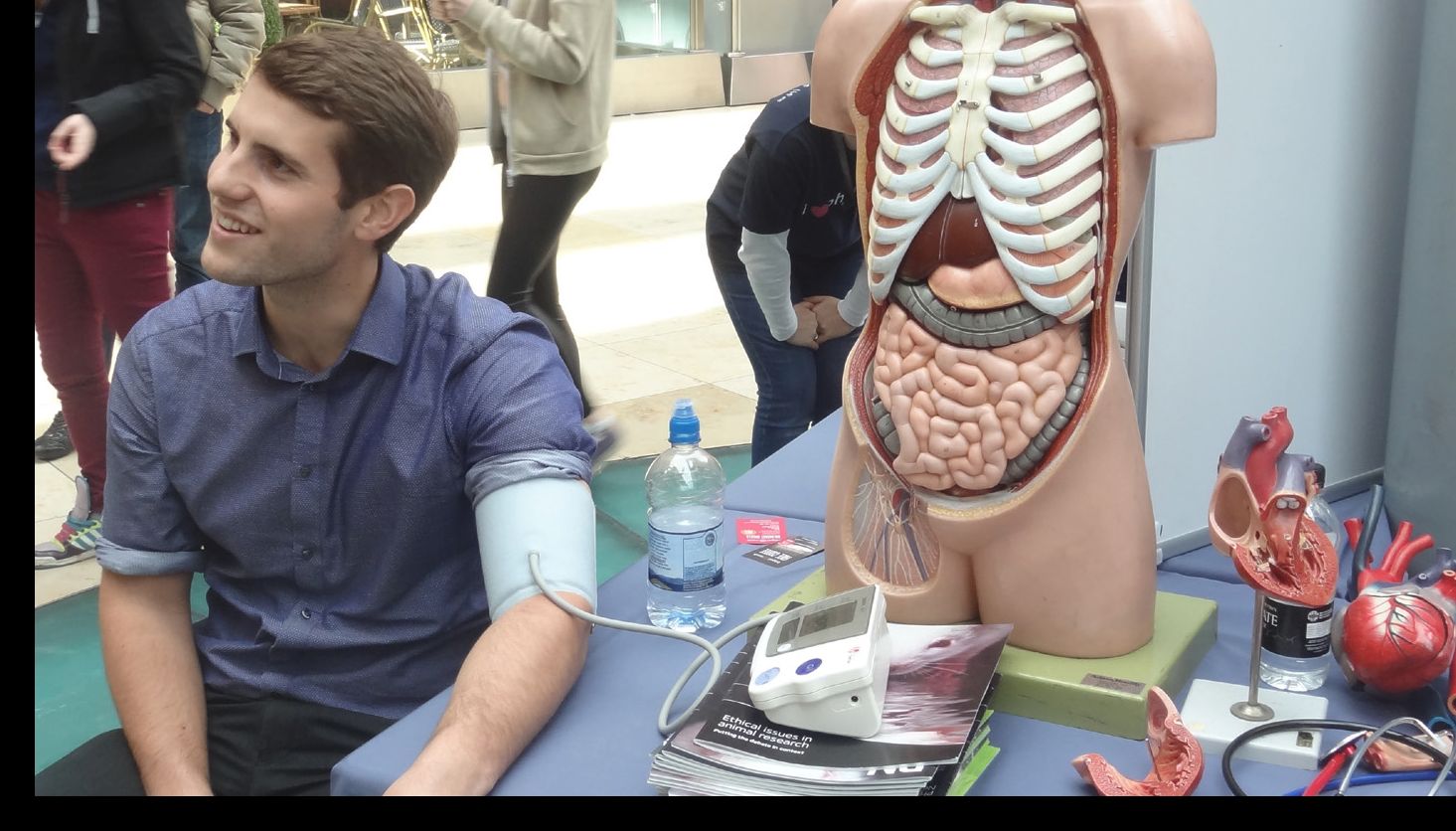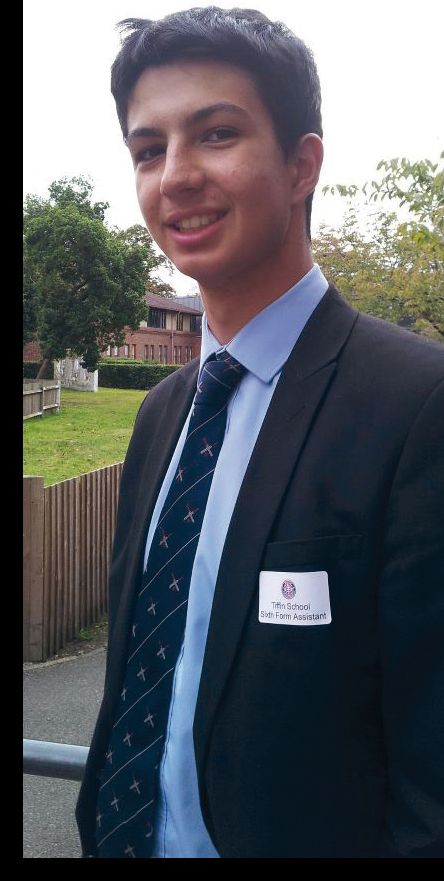
Physiology News Magazine
Biology Week and Physiology Friday
News and Views
Biology Week and Physiology Friday
News and Views
The Society’s Outreach Officer, Lewis Dean, and Education Officer, Angela Breslin, report on the inaugural Biology Week
https://doi.org/10.36866/pn.89.7
This year saw the inaugural Biology Week from 13–19 October. Coordinated by the Society of Biology, the week saw a huge variety of events organised by academics, schools, learned societies, zoos and local groups. A particular highlight was the open evening at the Royal Veterinary College, featuring a live dissection of a (dead) horse, a debate on whether we should save the panda (pandas survived the debate) and a record attempt for the world’s largest memory game (sorry, we can’t remember the result). The Society supported the week, in particular 19 October – named ‘Physiology Friday’ – through our grant programmes and by organising a writing competition.
Physiology Friday events took place at several venues around the country. For example, in Leeds, physiologists, led by Charlotte Haigh, ran a stall in a shopping centre celebrating the physiology of the heart. As well as exploring anatomical models of the trunk and heart, the public could have their blood pressure taken and sit for an ECG. In Brighton, Emma Ross organised a public symposium entitled ‘The Science of Elite Sporting Performance’, featuring physiologists and Paralympian cyclist Darren Kenny, discussing the impact of science on the training and performance of athletes.
With the success of this year’s week, we’re all looking forward to Biology Week 2013.

The Holy Grail of human biology research: under-19s writing competition
As part of Biology Week, we ran a writing competition for under-19s. Entrants were asked to answer the following question in no more than 200 words: “What do you think is the holy grail of human biology research?”
The judges were really impressed by the number and quality of entries received. Judging took place throughout Biology Week and on Physiology Friday (19 October) we were pleased to announce 16-year-old Oliver Neely of Tiffin School as the winner. This is his entry:
What do you think is the holy grail of human biology research?
I think that the ‘Holy Grail’ of human biological research is to do with certain curious structures found within all organisms: telomeres. These structures are found at the ends of chromosomes and telomeres are there essentially to protect the useful DNA from the ‘end replication problem’, so to stop genetic information being lost during replication.
As a person gets older, the telomeres on their chromosomes get shorter and shorter which accounts for the ageing process and eventually natural death.
An enzyme named ‘telomerase’ exists and is present within very young cells, such as those found in foetuses, and this enzyme repairs the telomeres at the ends of DNA. If we could somehow use this enzyme on our body’s cells, then in theory we could make our cells immortal.
Cancer cells undergo rapid cell division and consequently their telomeres shorten very quickly, so, to get around this, they use telomerase in order to keep them from ageing. For this reason, research into telomeres might also help us to find a cure for cancer.
Finally, if we were able to get human cells to continuously divide, we could more easily produce cells for transplantation to help people with various genetic disorders.
We would like to thank everyone who entered this competition and congratulate Oliver on his achievement.

